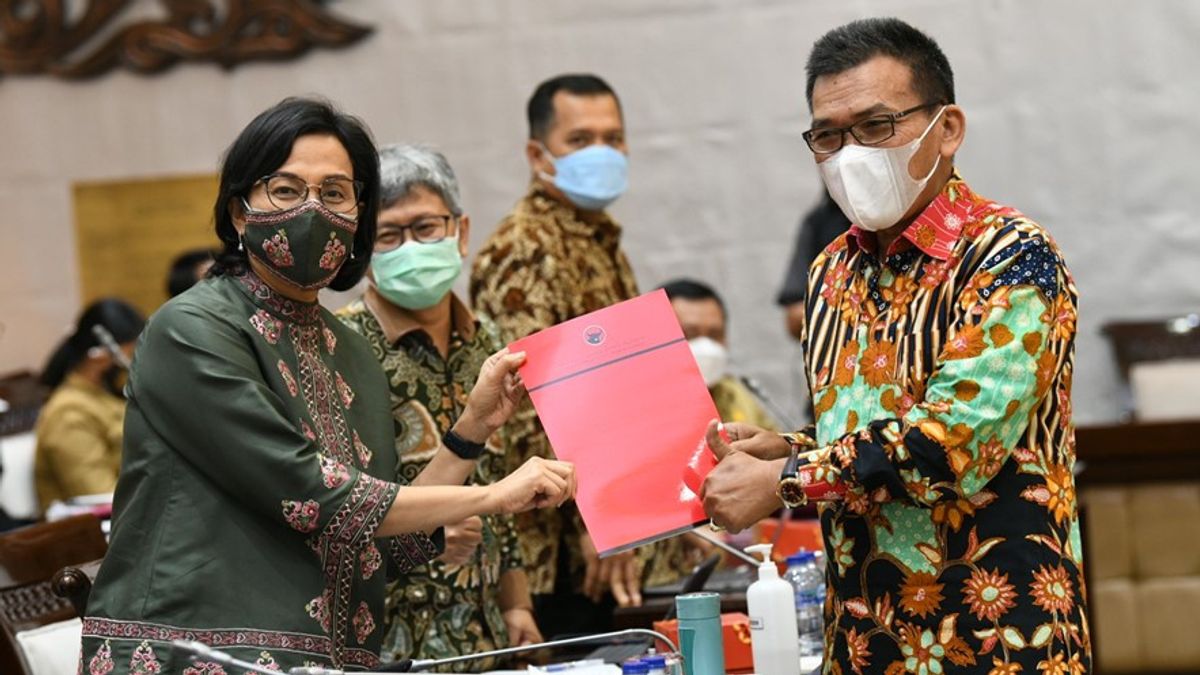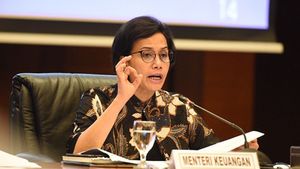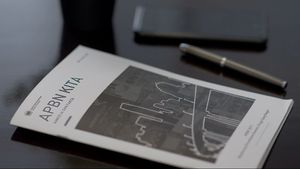JAKARTA - The government through the Ministry of Finance and the Indonesian House of Representatives agreed to continue the discussion of the Draft Law on Financial Relations between the Central Government and Regional Governments (RUU HKPD) in Level II Discussions/Decision Making in the plenary session.
Minister of Finance (Menkeu) Sri Mulyani Indrawati is said to have accepted the results of the discussion of the bill at the working committee level which became the basis for making decisions on the first level talks earlier this week.
"The arrangement in the HKPD Bill is expected to be a momentum to strengthen the role of local governments, which together with the central government work together to achieve the national goal of improving the welfare of the people with justice and providing protection to the entire nation and the homeland of Indonesia," he said in a press statement. quoted Wednesday, November 24.
According to the Minister of Finance, the HKPD Bill is closely related to Law Number 7 of 2021 concerning the Law on Harmonization of Tax Regulations (UU HPP). The HPP Law is expected to increase the tax ratio at the central level and state revenues, which will then also be distributed to the regions in the form of transfers to the regions.
Meanwhile, the HKPD Bill is claimed to be able to increase the tax ratio at the regional level, primarily to increase regional independence, but while maintaining a balance in terms of the burden on the community.
The Minister of Finance also revealed that in the discussion of the HKPD Bill, the government and the Indonesian House of Representatives focused on improving the quality of state spending and synergizing national fiscal policies.
"The HKPD Bill is a structural reform effort in the field of fiscal decentralization, by looking at our experience in carrying out fiscal decentralization so far, in order to create a more efficient allocation of national resources through a more transparent, accountable, and just financial relationship between the central and regional governments," he said.
SEE ALSO:
For information, the HKPD Bill is also a follow-up to the evaluation of the implementation of fiscal decentralization which was previously regulated in Law Number 33 of 2004 concerning Financial Balance between the Central Government and Regional Governments.
In addition, the HKPD Bill also incorporates improvements to regulations regarding regional taxes and regional levies which are currently regulated in Law 28 of 2008 concerning Regional Taxes and Levies, to strengthen local taxing power. an important instrument for fiscal consolidation. This is once again not a recentralization, but to restore the health of the state budget, where the budget is a very important part of our state budget,” said the Minister of Finance.
Eliminating the mandatory 26 percent
Just so you know, in the previous VOI report, the HKPD Bill discussed the abolition of the provision for the transfer of the General Allocation Fund (DAU) to the regions by 26 percent of the net domestic income stipulated in the state budget (APBN).
A researcher from the Institute for Development of Economics and Finance (Indef) Rusli Abdullah assessed that the design allows the central government to establish a one-way policy to determine the amount of DAU to be sent to the regions because there is no stipulation of the portion that regulates it.
"Now this 26 percent figure is a number that becomes a reference for local governments to carry out budgeting or plan their regional budget (APBD)," he said.
The English, Chinese, Japanese, Arabic, and French versions are automatically generated by the AI. So there may still be inaccuracies in translating, please always see Indonesian as our main language. (system supported by DigitalSiber.id)










